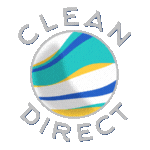Accueil
>
Actualités sur le nettoyage
>
Protéger votre entreprise : les polices d’assurance essentielles pour les entreprises de nettoyage

Protéger votre entreprise : les polices d’assurance essentielles pour les entreprises de nettoyage
Gérer une entreprise de nettoyage comporte des risques : accidents, bris de matériel, réclamations de clients. Sans une assurance adéquate, un imprévu pourrait vous coûter des milliers de dollars et mettre votre entreprise en péril.
Alors, de quelle assurance avez-vous réellement besoin ? Découvrons les polices d'assurance essentielles qui protègent votre entreprise de nettoyage, vos employés et vos finances.
1. Pourquoi l'assurance est importante pour les entreprises de nettoyage
Le nettoyage peut sembler peu risqué par rapport à la construction ou aux industries lourdes, mais beaucoup de choses peuvent mal tourner :
🚩 Un client glisse sur un sol fraîchement nettoyé et poursuit en justice pour les frais médicaux.
🚩 L’un de vos employés endommage du matériel de bureau coûteux en faisant le ménage.
🚩 Votre camionnette de travail a un accident, vous laissant sans moyen de transport.
Avec une assurance adaptée, vous n'aurez pas à payer de votre poche ces situations coûteuses. Au lieu de vous inquiéter du « et si ? », vous pourrez vous concentrer sur la gestion et la croissance de votre entreprise.
2. Polices d'assurance indispensables pour les entreprises de nettoyage
Toutes les entreprises n’ont pas besoin de la même couverture, mais ces politiques sont essentielles pour la plupart des services de nettoyage.
A. Assurance responsabilité civile générale (couvre les accidents et les dommages)
- Vous protège si un client ou un tiers est blessé en raison de vos services.
- Couvre les dommages matériels causés par vous ou vos employés.
- Aide aux frais juridiques si quelqu'un poursuit votre entreprise.
💡 Exemple : Si un client trébuche sur le cordon de votre aspirateur et se blesse, l’assurance responsabilité civile aide à couvrir ses frais médicaux et les frais de poursuite.
ㅤ
B. Indemnisation des accidents du travail (protège vos employés)
- Couvre les frais médicaux et les pertes de salaire si un employé se blesse au travail.
- Exigé par la loi dans la plupart des États si vous avez des employés.
- Protège votre entreprise contre les poursuites intentées par des employés blessés.
💡 Exemple : Si un travailleur se blesse au dos en soulevant un équipement de nettoyage lourd, l'indemnisation des accidents du travail couvre ses frais médicaux et son temps de récupération.
ㅤ
C. Assurance automobile commerciale (couvre les véhicules de travail)
- Couvre les dommages causés par des accidents impliquant des véhicules d'entreprise.
- Protège contre la responsabilité si votre employé provoque un accident.
- Aide aux frais de réparation des fourgonnettes et camions de travail.
💡 Exemple : Si l'un de vos camions de nettoyage percute l'arrière d'une autre voiture sur le chemin d'un travail, cette assurance aide à couvrir les réparations et les frais juridiques.
ㅤ
D. Cautionnement de conciergerie / Assurance contre la malhonnêteté des employés (protège contre le vol)
- Couvre les pertes si un employé vole un client.
- Rassure les clients sur le fait que votre entreprise est digne de confiance.
- Souvent requis pour les contrats de nettoyage commerciaux.
💡 Exemple : Si un client accuse un employé d’avoir volé de l’argent sur un bureau, cette caution permet d’indemniser le client et de protéger votre réputation.
ㅤ
E. Assurance des biens commerciaux (couvre l'équipement et les bureaux)
- Protège votre équipement de nettoyage contre le vol, l'incendie ou les dommages.
- Couvre votre espace de bureau, si vous en avez un.
- Peut inclure une couverture pour les catastrophes naturelles ou le vandalisme.
💡 Exemple : Si un incendie endommage votre espace de stockage et détruit les aspirateurs, les serpillières et les fournitures, l’assurance des biens aide à couvrir les coûts de remplacement.
3. Couverture facultative à considérer
Bien que les politiques ci-dessus soient essentielles, ces couvertures supplémentaires peuvent offrir une protection supplémentaire.
- Assurance responsabilité civile professionnelle – Couvre les réclamations pour mauvais service ou négligence.
- Assurance parapluie – Ajoute une couverture responsabilité civile supplémentaire au-delà des polices générales.
- Assurance responsabilité civile cybernétique – Protège en cas de piratage des informations ou des données de paiement des clients.
Si vous développez votre activité ou proposez des services haut de gamme, ceux-ci peuvent vous apporter une tranquillité d'esprit.
4. Combien coûte l’assurance d’une entreprise de nettoyage ?
Les coûts varient en fonction de facteurs tels que la taille de l'entreprise, son emplacement et les limites de couverture. Voici une estimation approximative.
- Assurance responsabilité civile générale – 500 $ à 2 000 $ par an
- Indemnisation des accidents du travail – 1 000 $ et plus par employé et par an
- Assurance automobile commerciale – 1 200 $ et plus par véhicule par an
- Cautionnement de conciergerie – 100 $ à 500 $ par an
La meilleure façon d’obtenir un coût précis est de comparer les devis de plusieurs assureurs.
5. Choisir le bon fournisseur d'assurance
Lorsque vous choisissez un assureur, recherchez :
- Expérience avec les entreprises de nettoyage – Certains assureurs se spécialisent dans les secteurs de services.
- Primes abordables – Équilibrez le coût avec les besoins de couverture.
- Bon service client – Lisez les avis pour vous assurer qu’ils traitent les réclamations en douceur.
- Options de couverture flexibles – Vous souhaitez une police qui évolue avec votre entreprise.
Comparez toujours les devis avant de vous décider.
Protégez votre entreprise avant qu'il ne soit trop tard
L'assurance n'est pas seulement une dépense : c'est un investissement dans l'avenir de votre entreprise. Une couverture adaptée vous protège contre les catastrophes imprévues, les réclamations et les pertes financières. Avoir une assurance signifie que vous pouvez gérer votre entreprise de nettoyage en toute confiance, sachant que vous êtes couvert quoi qu'il arrive.
Pour plus de conseils d’experts sur la croissance et la protection de votre entreprise de nettoyage, visitez notre site Web .
Partager






































































































